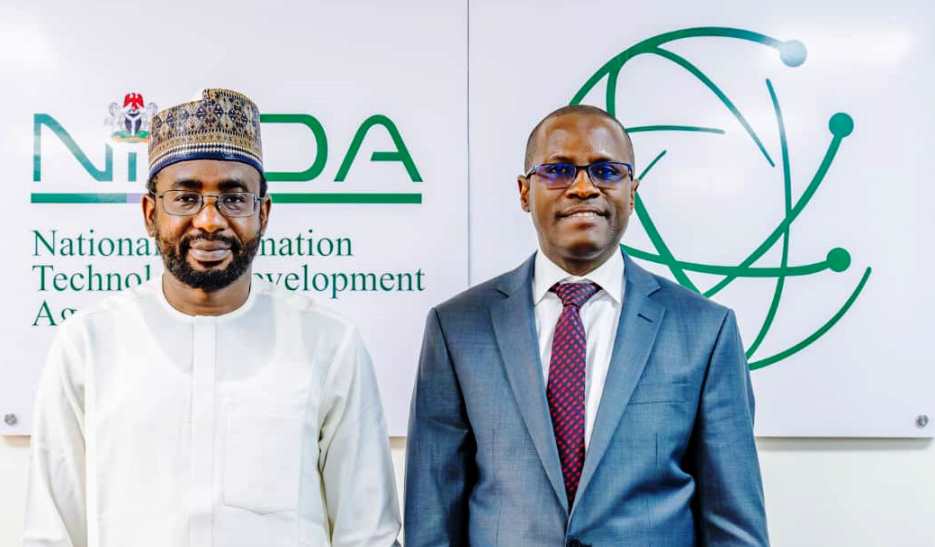In a region as richly diverse as Nigeria and West Africa, the enduring influence of the Prophet Muhammad (Peace be upon him) continues to shape daily life, community interactions, and spiritual growth. For many, especially during Friday sermons (Jumu’ah Khutbah), reflecting on how best to honour his legacy is both a spiritual and cultural touchstone.
Muslims in Nigeria and across Africa find inspiration in the unique status granted to Prophet Muhammad (Peace be upon him) by Allah. According to hadiths recorded in Sahih Muslim, the Prophet stated, “Allah took me as a close friend just as He took Ibrahim as a close friend.” This exclusive friendship signifies a level of closeness with the Creator that serves as a model for all believers, emphasizing profound humility, sincerity, and devotion.
The Prophet’s role does not just resonate in the spiritual realm, but also manifests in his leadership for the entire humanity. As narrated in Sahih Muslim, he once shared, “I will be the master of the children of Adam on the Resurrection Day, the first one whose grave will be opened, the first one to intercede, and the first one who will be allowed to intercede.” These descriptions capture the immense honours that will be bestowed upon the Prophet in the Hereafter and reinforce his importance as a guide for all.
But what does it mean for local communities—Nigerians, Ghanaians, and West Africans—to honour his teachings in their everyday lives today? Below, we examine practical ways to support, love, and defend the honour of Prophet Muhammad (Peace be upon him), offering insight into personal and communal approaches relevant in an African context.
Supporting and Defending the Prophet’s Honour in Today’s World
One of the central duties for Muslims, according to Islamic teachings, is to support and defend the Prophet Muhammad (Peace be upon him)—a responsibility that extends both during his lifetime and continues after his death. In Nigeria, with frequent public debates and social media discourse about religion, this support often translates into defending the Prophet’s Sunnah (his sayings, practices, and silent approvals) from misrepresentation, misinformation, and defamation.
Adherents are encouraged to respond thoughtfully—through education, evidence-based dialogue, and principled conduct. Citing the Qur’anic assurance: “We are enough for you against the mockers” (Surah Al-Hijr: 95), many Nigerian Muslims find comfort knowing that the Prophet’s noble standing remains untouched, regardless of temporary slander or criticism.
Local Approaches: Individual and Community Actions
As observed in mosques from Lagos to Kano and in Islamic communities across Ghana and West Africa, defending the Prophet (Peace be upon him) takes several forms:
- Educating others about his characteristics—his compassion, integrity, and beauty, both inside and out.
- Upholding love for the Prophet above personal and family attachments.
- Practising humility and decorum when mentioning his name or discussing his life, especially within mosques and religious gatherings.
- Consistently upholding and teaching respect for his Sunnah, being vigilant against joking or sarcasm concerning any aspect of his traditions.
- Openly rejecting negative remarks or mockery towards the Prophet, refraining from association with those who perpetuate such insults.
These practices have particular resonance in a West African context, where family, tradition, and community bonds are strong. According to Abuja-based scholar Malam Isa Yusuf, “When the Prophet is mentioned even in casual village gatherings, you will see a respectful hush descend—our people reflect honor deeply in these moments.”
Loving the Prophet: The Highest Form of Devotion
Islamic tradition teaches that true belief is measured by love for the Prophet Muhammad (Peace be upon him) surpassing even self-love. An incident reported in Sahih Al-Bukhari describes Umar Ibn Al-Khattab confessing he loved the Prophet only second to himself, only to be reminded that faith requires the Prophet to be most beloved. Umar’s heart shifted, echoing a transformation familiar to many African worshippers committed to deepening their connection to the Prophet.
This form of love is not merely emotional but inspires a practical imitation of his character, patience, and fairness, especially in societies facing challenges such as poverty, inequality, and injustice. Locally, evidence of such love is seen in the robust community support for orphans, widows, and the less privileged, echoing the Prophet’s relentless advocacy for the vulnerable.
Following the Sunnah: Bringing Prophetic Guidance into Everyday Nigerian Life
A core aspect of being a follower of Prophet Muhammad (Peace be upon him) is striving to emulate his conduct: from how he dealt with disagreements to how he ate, traded, and cared for his family. In Nigerian households and schools, respected imams and teachers often urge, “If you want Allah’s mercy, look to the example of the Prophet—his patience, honesty in business, respect for elders, and kindness towards children.”
In practical terms, this could mean:
- Pursuing fairness in business and daily transactions
- Respecting the voices and rights of women in society, as the Prophet did with his family
- Ensuring justice and kindness in community leadership roles
- Prioritising education and charity for the less privileged
Respect and Reverence: Honouring the Prophet During and After His Life
Respecting the legacy of Prophet Muhammad (Peace be upon him) extends across generations. In Nigeria, it’s not uncommon for people to lower their voices in mosques, especially in Madinah during pilgrimage, or when reciting his name in supplication. Historical anecdotes recount how the Prophet’s companions would sit still for hours, a testament to their admiration and attentiveness—a level of respect that West African worshippers often aspire to emulate today.
Uplifting Relatives and Companions of the Prophet
Love for the Prophet naturally translates to respect for his family and companions who upheld and spread his message. Islamic scholars stress that insult and undue criticism of the Prophet’s companions is forbidden, highlighting instead the importance of unity and respect towards all who sincerely followed him.
Preserving the Prophet’s Standing: Between Honour and Exaggeration
While Islam calls for great honour towards the Prophet, it also warns against exaggeration. According to both Al-Bukhari and Muslim, the Prophet cautioned not to elevate him to a divine status, as happened in the Christian tradition. For Nigerian and African Muslims, this principle encourages a balanced approach—respect and love without assigning divine attributes or engaging in practices contrary to Islamic monotheism.
Global Perspectives: Sharing the Prophet’s Legacy Beyond Borders
The role of communities, governments, and individuals in spreading the message and legacy of Prophet Muhammad (Peace be upon him) is broad and impactful. In Nigeria, institutions and NGOs work to:
- Publish accessible literature on the Prophet’s life in English, Hausa, Yoruba, and Igbo, among others
- Establish research centres focusing on Islamic studies and the Prophet’s biography
- Launch educational television and radio programmes highlighting the Prophet’s teachings
- Organise competitions and exhibitions to engage the youth with Islamic heritage
There remains a call to harness social media responsibly—sharing hadith, positive stories, and respectful content—especially as digital platforms shape youth engagement.
Practical Application: Engaging Scholars, Media, and Community Leaders
Muslim scholars, imams, and students of knowledge in Nigeria play a central role in guiding communities, debunking misconceptions, and making the Prophet’s life relatable for younger generations. Through sermons, lectures, and publications, they offer real-life examples of the Prophet’s conduct, particularly in family life, social justice, and public service. Media professionals are called upon to create documentaries, journal articles, and interactive forums that foster interfaith understanding and celebrate shared values.
Making the Message Accessible: Multilingual and Multimedia Approaches
To reach wider audiences, especially in a linguistically diverse region, stakeholders invest in:
- Translation of the Prophet’s biography into local and international languages
- Distribution of Islamic literature and digital resources in libraries and online
- Producing videos, podcasts, and social media content tailored for all age groups
Notably, competitions and campaigns encourage youth to explore and creatively present what they’ve learned about the Prophet, bridging generational gaps.
The Importance of Sending Prayers on the Prophet
One key practice loved by Nigerian Muslims, particularly after Jumu’ah or during family gatherings, is sending prayers upon the Prophet. Referencing the Qur’anic guidance and hadith, this simple act is believed to attract blessings and forgiveness. Many local preachers remind their congregations that omitting this prayer is considered miserly.
Respecting Sacred Spaces: The Prophet’s Mosque, Grave, and City
West African pilgrims visiting Madinah emphasize upholding the sanctity of the Prophet’s mosque and grave, as instructed in Islamic sources. This extends to preserving decorum during Hajj and Umrah, which have seen growing numbers of Nigerian and Ghanaian participants in recent years.
Societal Impact: Collective Strategies and the Road Ahead
From publishing initiatives to interfaith seminars, conferences, and charity programmes, the combined efforts of religious leaders, academics, community organizations, and ordinary believers are essential for upholding the dignity of Prophet Muhammad (Peace be upon him). In an age of misinformation, education and practical demonstration of Islamic values remain the most powerful tools for clear representation. As observed by Professor Fatima Sanni of the University of Ibadan, “It’s not just about defending with words but modelling the Prophet’s kindness and wisdom in society.”
As Africa’s Muslim populations continue to grow and interact ever more with global trends and diverse faiths, the legacy of Prophet Muhammad (Peace be upon him) remains a crucial bridge between tradition and modernity, offering lessons in compassion, justice, and community spirit.
How do you see the Prophet’s teachings influencing daily life in your community? What steps can local leaders and individuals take to strengthen this legacy in modern Nigeria, Ghana, and beyond? Share your thoughts and stay connected for more authentic, locally relevant conversations about faith and society.
We want to hear from you! Whether it’s your personal experience, an event in your town, or a community project, email us at story@nowahalazone.com to get your story featured or talk about selling your story.
For questions and general support, reach out any time at support@nowahalazone.com.
Don’t forget to join the conversation and follow us for more West African perspectives on Facebook, X (Twitter), and Instagram!










